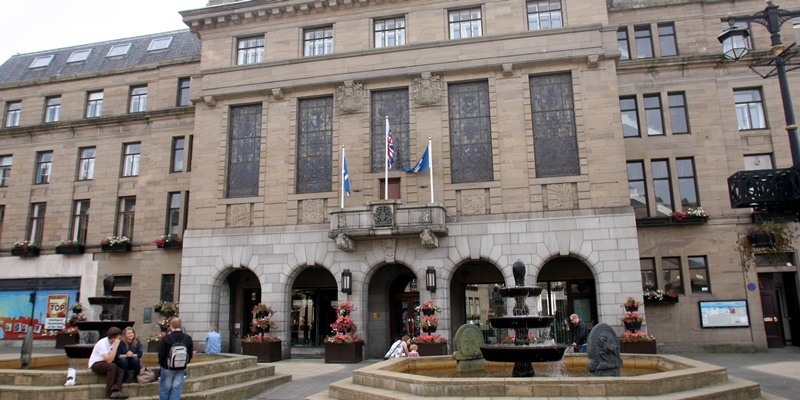Dundee City Council has voted for a smaller number of rationalised regional police and fire services, with the SNP administration seeing off moves by opposition groups for Scotland to have single, country-wide police and fire services or to maintain the status quo.
He considered police reform could improve services by moving towards closer integration at a local level with a greater focus on outcomes, and that the greatest challenge facing policing is to maintain front-line services.
It was important to retain local democratic accountability, however, and there was a concern that with a single Scottish police force the needs and interests of specific communities like Dundee would be eclipsed by those of bigger areas.
His argument for the fire and rescue service was similar, with the comment that the existing Tayside service performs well against the principles set out in the consultation document and has achieved good outcomes.
“Local accountability and local knowledge are important,” he added. “We want to share, not centralise.”
Mr Guild’s motion prevailed, with the SNP councillors mustering more votes than the opposition amendments. Similar arguments were advanced unsuccessfully by the opposition groups for the reorganisation of fire and rescue services.
But there was agreement from around the chamber that, in its response to the Scottish Government, the council should press for any possible job opportunities resulting from the reorganisation of the emergency services to come to Dundee.
The policy and resources committee considered the authority’s response to the Scottish Government’s consultation into the debate about the future of the two emergency services with the government itself proposing to scrap the present set-up of eight separate bodies responsible for policing and the same number dealing with fire and rescue operations.
The government believes a single, Scotland-wide police service and fire service would be more efficient and effective, with Alex Salmond declaring that bobbies were more important than boundaries.
Administration leader Ken Guild proposed that in principle there should be a regionalised police force model, with the present eight reorganised into a structure of three or four.
One possible arrangement mentioned previously was for a combined Tayside, Fife and Central Scotland force.
Until detailed arrangements about local accountability are in place and a business plan published, however, Mr Guild said the status quo of eight forces should be maintained.
His scenario for fire services was the same, although there were no details on the number of fire boards that would survive. Only a fewer number than at present serving larger geographical areas.
Mr Guild said, “It is unlikely there will be the status quo in policing in the long term because it is an anachronism for there to be eight separate constabularies for a population of five million people.
“One force (Strathclyde) has half of the country’s population and within the other seven there is one force, Dumfries and Galloway, which has no major cities but the main reason for its retention is that it has the highest percentage of special branch officers of any force in the country because of its proximity to Northern Ireland.
“The political situation in Northern Ireland has changed and as times change it is essential that the policing system changes with it.”
Continued…
